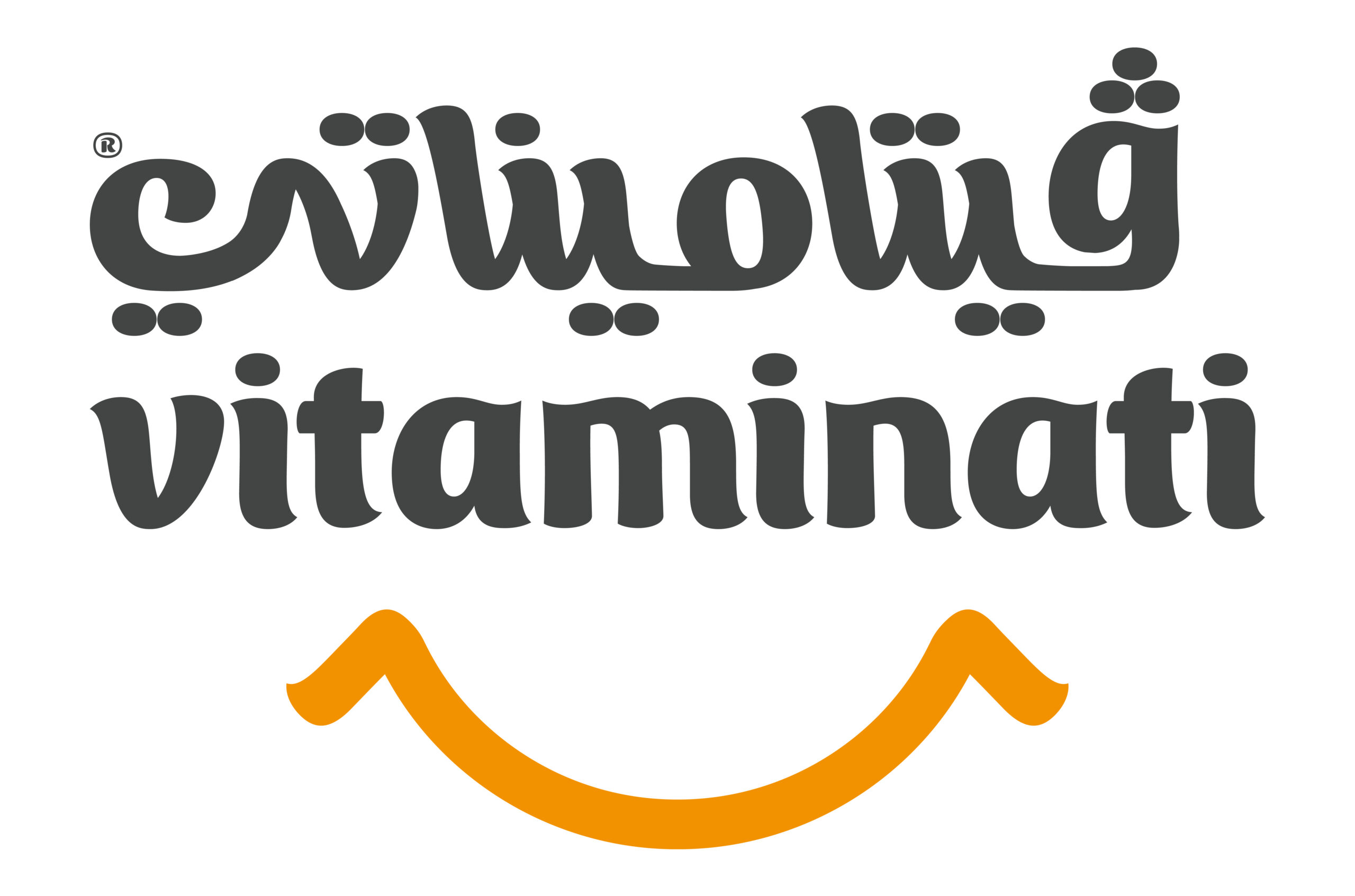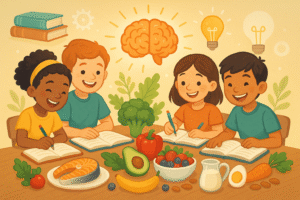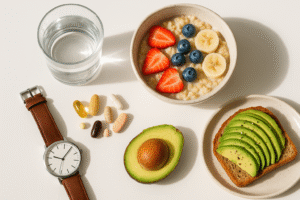Table of Contents
ToggleWhy Do Teenagers Have Different Vitamin Needs?
Adolescence is one of the most critical stages of human development, marking the transition from childhood to adulthood. During this period, teenagers experience tremendous physical, mental, and emotional changes — making vitamins for teenagers essential for supporting their rapid growth and overall health.
Their height increases rapidly, muscle mass expands, and internal organs develop quickly to support accelerated growth. Hormonal activity intensifies, affecting metabolism, mood, and concentration levels.
These dramatic transformations increase the body’s demand for nutrients — especially vitamins and minerals, which act as the body’s fuel for growth and development.
Since vitamins are not naturally produced in sufficient quantities, they must be obtained through food or supplements. When teenagers lack essential vitamins, they may suffer from weak immunity, delayed growth, fatigue, and poor academic performance.
Role of vitamins in immunity.
That’s why teenagers’ vitamin needs differ greatly from those of children or adults — because their bodies and minds are in a stage of continuous building and development.
Ensuring proper nutrition during adolescence isn’t a luxury — it’s a necessity for maintaining strength, focus, and long-term health. Understanding the most important vitamins for teenagers is the first step toward achieving this goal.
The Most Important Vitamins Teenagers Need for Growth and Health:
Vitamins are small but essential compounds that play a vital role in every cell. They regulate metabolism, support immunity, produce energy, and maintain brain and nervous system functions.
What are vitamins and why does our body need them?
Below are the key vitamins for teenagers that the growing body can’t do without.
1. Vitamin D for Teenagers and Bone Development:
Vitamin D — often called the “sunshine vitamin” — is produced when skin is exposed to sunlight. It’s essential for calcium and phosphorus absorption, which are critical for bone and teeth strength.
During adolescence, bones grow rapidly, so a lack of vitamin D can cause weak bones, delayed growth, muscle pain, or joint discomfort.
Vitamin D also plays a major role in supporting the immune system and balancing mood. Deficiency can be linked to fatigue, anxiety, and poor mental focus.
The best way to get vitamin D is 15–30 minutes of daily sunlight exposure, combined with foods like fatty fish (salmon, sardines), eggs, and fortified milk.
In areas with limited sunlight, a doctor may recommend vitamin D supplements.
2. Iron for Growth and Energy:
Iron is an essential mineral responsible for forming hemoglobin in red blood cells, which carries oxygen throughout the body.
what is the difference between vitamins and minerals?
Low iron levels reduce oxygen delivery, leading to fatigue, pale skin, poor focus, and lower physical and academic performance.
During adolescence, the body’s need for iron increases due to rapid growth and higher blood and muscle volume.
Teenage girls are particularly vulnerable to iron deficiency due to menstrual blood loss, making iron-rich foods essential.
Top sources of iron:
-
Lean red meat and liver.
-
Lentils, beans, and spinach.
-
Iron-fortified grains.
Eating foods high in vitamin C (like oranges and peppers) helps improve iron absorption, while coffee and tea after meals can reduce it.
3. Zinc for Teenagers and Immune Strength:
Zinc is a crucial mineral that supports more than 100 enzymatic functions in the body. It’s vital for growth, tissue development, and immunity.
During adolescence, zinc plays a key role in:
-
Building muscles and tissues.
-
Supporting healthy hair, nails, and skin.
-
Strengthening the immune system.
-
Promoting wound healing.
-
Balancing hormones during puberty.
Zinc deficiency can cause slow growth, acne, hair loss, weak immunity, and even delayed puberty.
It’s found in poultry, eggs, nuts, legumes, and whole grains.
For best absorption, pair zinc-rich foods with protein sources like meat or eggs.
4. Omega-3 Fatty Acids for Brain Health and Focus:
Omega-3 fatty acids are among the most beneficial nutrients for teenagers. They support brain growth, improve focus and learning ability, and reduce stress and inflammation.
Teenagers who consume enough omega-3 tend to have better memory, academic performance, and emotional balance.
These healthy fats form part of the brain’s cell structure and improve communication between nerve cells, enhancing clarity and concentration.
Best omega-3 sources:
-
Fatty fish such as salmon, tuna, and sardines
-
Walnuts, chia seeds, and flaxseeds
-
Fish oil or flaxseed oil supplements
For teens who rarely eat fish, a doctor may recommend safe omega-3 supplementation.
5. Vitamin B Complex for Energy and Vitality:
The B vitamins (B1, B2, B3, B6, B12, and folic acid) are essential for converting food into energy.
They also support the nervous system, promote cell growth, and help produce red blood cells.
Deficiency in these vitamins can cause fatigue, irritability, poor memory, and loss of appetite.
Vitamin B12 and folate, in particular, prevent anemia and maintain energy levels.
Good sources of Vitamin B Complex:
-
Whole grains (oats, wheat, brown rice)
-
Eggs, meat, and poultry
-
Leafy green vegetables (spinach, broccoli)
-
Fruits like bananas and avocados
A breakfast rich in B vitamins provides lasting energy for school and activities.
Natural Sources of Vitamins for Teenagers:
A balanced, varied diet is the best way to ensure teenagers get all the nutrients they need.
Can the body get all Vitamins from Food only?
| Vitamin / Nutrient | Rich Food Sources |
|---|---|
| Vitamin D | Fatty fish, egg yolks, fortified milk, sunlight |
| Iron | Red meat, liver, lentils, spinach, whole grains |
| Zinc | Nuts, legumes, poultry, eggs |
| Omega-3 | Salmon, walnuts, flaxseeds, fish oil |
| Vitamin B Complex | Whole grains, vegetables, meat, eggs |
Encourage teenagers to choose fresh, natural foods instead of processed or fast foods, which are often high in fat and sugar but low in nutrients.
When Do Teenagers Need Vitamin Supplements?
While natural food is the best source of vitamins, some cases may require supplements.
Teenagers may need supplements if they have:
-
A diagnosed nutrient deficiency.
-
Rapid growth that food alone can’t sustain.
-
Intense athletic activity that depletes nutrients quickly.
-
A restricted diet, such as vegan or low-calorie plans.
-
Low appetite or absorption issues due to digestive conditions.
In such situations, supplements containing vitamin D, iron, zinc, or B vitamins may be prescribed by a healthcare provider.
Supplements should never be taken randomly — always under medical supervision.
Signs of Vitamin Deficiency in Teenagers:
Recognizing deficiency symptoms early helps prevent long-term health problems.
Common warning signs include:
-
Constant fatigue and poor concentration – may indicate low iron or vitamin B12
-
Weak immunity and frequent infections – linked to low vitamin D or zinc
-
Hair loss or brittle nails – may signal zinc or biotin deficiency
-
Pale skin or dizziness – can indicate anemia due to iron deficiency
-
Mood swings and anxiety – may be caused by lack of omega-3 or vitamin B6
-
Delayed growth or weak bones – associated with vitamin D and calcium deficiency
If these symptoms persist, it’s best to consult a doctor for testing and guidance.
Read more about symptoms of Vitamin Deficiency.
Practical Tips to Meet Teenagers’ Vitamin Needs:
-
Eat balanced meals daily with proteins, carbohydrates, healthy fats, vegetables, and fruits.
-
Limit fast food and soft drinks, as they’re high in calories but poor in nutrients.
-
Never skip breakfast, as it boosts focus and energy during school.
-
Drink enough water to support nutrient absorption and circulation.
-
Get enough sleep, since growth hormones are released during rest.
-
Exercise regularly to enhance metabolism and nutrient use.
-
Enjoy moderate sunlight exposure to naturally produce vitamin D.
-
Get the family involved in preparing healthy meals and promoting awareness.
Healthy habits established in adolescence lay the foundation for lifelong well-being.
Conclusion: Balanced Nutrition Is the Key to Teen Health.
Balanced nutrition is the cornerstone of a healthy teenage life.
By focusing on a diet rich in vitamins for teenagers, minerals, and natural foods — while limiting processed snacks — adolescents can grow stronger, think sharper, and feel more energetic.
Supplements should be considered only when necessary and always under a doctor’s supervision.
Investing in good nutrition today means building confident, healthy adults tomorrow.
A teenager who learns to care for their body and nourish it properly will carry those habits into adulthood — ensuring health, happiness, and vitality for years to come.
Frequently Asked Questions (FAQs):
1. Do all teenagers need vitamin supplements?
Not necessarily. A balanced diet can usually provide all the vitamins and minerals a teenager needs.
2. How much sunlight should teenagers get daily?
Around 15–30 minutes per day in the morning or late afternoon is enough for vitamin D production.
3. Can iron deficiency cause poor concentration?
Yes, because iron carries oxygen to the brain, and low levels lead to fatigue and decreased focus.
4. Should teenagers eat fish regularly?
Yes — fatty fish provides protein and omega-3s that support brain function and mood.
5. How can vegetarian teens get enough vitamins?
By eating legumes, nuts, whole grains, and vegetables rich in iron and zinc. Vegan supplements can also help under medical guidance.
6. What symptoms require immediate medical attention?
Chronic fatigue, hair loss, poor concentration, or pale skin are warning signs that should be checked by a doctor.
Final Note:
Healthy eating during adolescence isn’t just about meals — it’s an investment in lifelong strength, focus, and happiness.
Providing the right vitamins for teenagers through a balanced diet is the best guarantee for a bright, energetic future.
PharmD with expertise in pharmaceuticals and a passion for making medical knowledge clear, accurate and accessible to all








